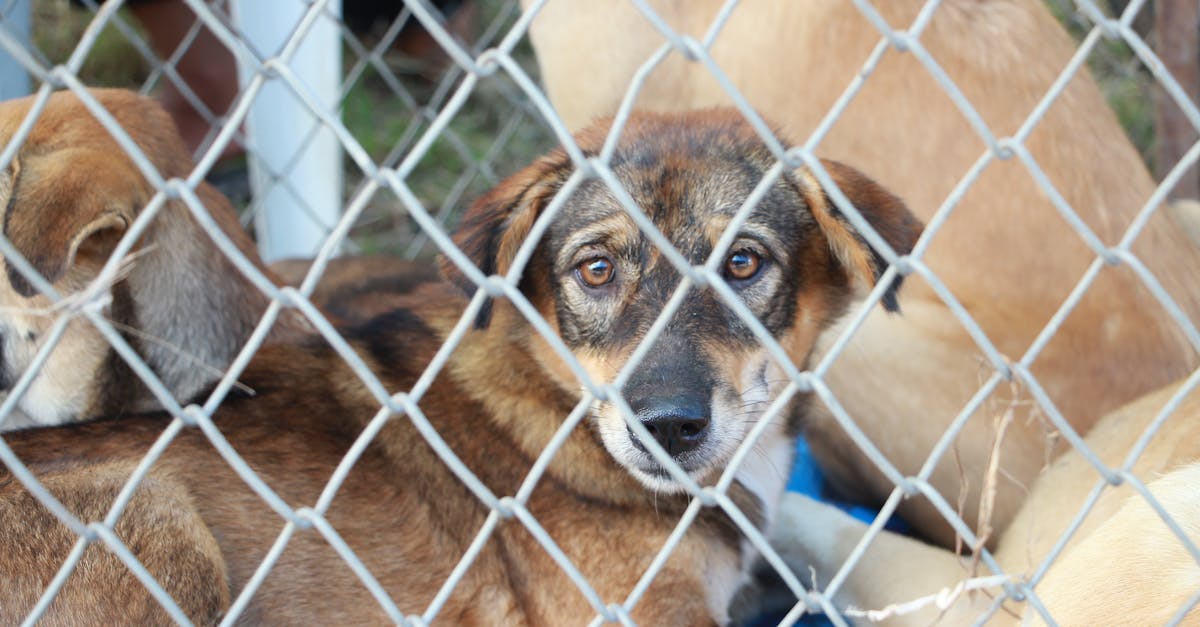The Hidden Truths of Dog Ownership
Hey there, dog lovers! 🐾 If you’re anything like me, you’ve probably spent countless hours scrolling through adorable dog videos, reading heartwarming adoption stories, and maybe even considering getting a furry friend of your own. But, have you ever wondered about the darker side of dog statistics? I was struck by how much information is out there that’s not only surprising but also quite alarming. So, let’s dive into the hidden truths behind dog statistics that you won’t believe.
The Shocking Reality of Dog Shelters
Overcrowding and Euthanasia Rates
One thing I’ve learned is that dog shelters are often overcrowded. Studies show that approximately 6.5 million companion animals enter U.S. animal shelters every year, with dogs making up around 3.3 million of that number. You might find this helpful to know: nearly 670,000 of these dogs are euthanized annually. 😢
- Overcrowding: Shelters can only house a limited number of animals, leading to overcrowded conditions.
- Euthanasia: Due to lack of space and resources, many healthy dogs are put down.
It’s no surprise that these statistics are heartbreaking, but they also highlight a significant issue in our society. Speaking from experience, adopting a dog from a shelter can save a life. If you’ve ever considered adopting, now is the time.
Breed-Specific Legislation (BSL)
Interestingly enough, certain breeds are more likely to end up in shelters due to Breed-Specific Legislation (BSL). BSL targets breeds considered dangerous, such as Pit Bulls and Rottweilers, leading to higher surrender rates. I can’t help but think this legislation is more harmful than helpful.
- Pit Bulls: Often stereotyped as aggressive, leading to higher abandonment rates.
- Rottweilers: Similarly affected by BSL, resulting in increased shelter populations.
The Financial Burden of Dog Ownership
Hidden Costs
You’d be surprised at how expensive owning a dog can be. It’s common knowledge that dogs require food, toys, and regular vet visits, but there are many hidden costs that can add up quickly.
- Emergency Vet Bills: Unexpected medical issues can cost thousands of dollars.
- Training: Professional training can be costly but is often necessary.
- Grooming: Regular grooming is essential for certain breeds and can be expensive.
Personally, I’ve found that budgeting for these expenses is crucial. Here’s a quick story: one time, my dog swallowed a sock and required emergency surgery. The bill was over $2,000! 😱
Insurance: Is It Worth It?
I’ve noticed that pet insurance is becoming more popular, but is it really worth it? Studies show that only 1-2% of pet owners in the U.S. have pet insurance. While it can help cover unexpected costs, the monthly premiums can be high.
- Pros: Covers emergency expenses, peace of mind.
- Cons: High premiums, not all conditions covered.
On that note, it’s essential to weigh the pros and cons before investing in pet insurance.
The Emotional Toll of Dog Ownership
The Impact of Dog Loss
Losing a dog is one of the hardest things a pet owner can experience. I couldn’t help but notice that many people underestimate the emotional toll it takes. You can probably relate if you’ve ever lost a pet.
- Grief: The loss of a dog can lead to intense grief and depression.
- Support: Many people don’t have the support they need during this difficult time.
Personally, I’ve been there, and it’s an incredibly challenging experience. If you’re going through this, you might find this helpful: seek support from friends, family, or even professional counselors.
The Stress of Behavioral Issues
It’s funny how we often imagine dog ownership as a series of joyful moments, but the reality can be quite different. Behavioral issues can cause significant stress for dog owners.
- Separation Anxiety: Dogs can suffer from separation anxiety, leading to destructive behavior.
- Aggression: Some dogs may exhibit aggressive behavior, which can be challenging to manage.
I’ve always thought that training and socialization are key to mitigating these issues. If you’re struggling with a problematic dog, consider seeking professional help.
The Environmental Impact of Dog Ownership
Carbon Pawprint
Did you know that owning a dog can have an environmental impact? It dawned on me that the carbon pawprint of dogs is often overlooked.
- Food Production: The production of dog food, especially meat-based diets, contributes to greenhouse gas emissions.
- Waste: Dog waste can contaminate water sources and contribute to pollution.
To put it simply, being mindful of your dog’s diet and waste disposal can help reduce their environmental impact. Consider eco-friendly options like biodegradable poop bags and sustainable dog food brands.
Wildlife Disruption
Dogs can also disrupt local wildlife. I’ve noticed that off-leash dogs in natural areas can harm native species.
- Chasing Wildlife: Dogs may chase and stress out wildlife, leading to negative impacts on local ecosystems.
- Predation: Some dogs may even kill small animals.
If you’re a dog owner, keeping your dog on a leash in natural areas can help protect wildlife.
The Benefits of Responsible Dog Ownership
Health Benefits
Despite the challenges, owning a dog has numerous benefits. Studies show that dog owners tend to be healthier and happier.
- Physical Health: Regular walks and playtime can improve your physical fitness.
- Mental Health: Dogs provide companionship and emotional support, reducing stress and anxiety.
Looking back, I can’t imagine my life without my dog. The joy and companionship they bring are unmatched.
Social Benefits
Dogs can also improve your social life. It’s no surprise that dog owners often form strong communities and friendships.
- Dog Parks: Great places to meet other dog owners.
- Social Events: Many communities host dog-friendly events and activities.
Personally, I’ve found that having a dog has helped me connect with others in my community. If you’re looking to expand your social circle, a dog might be the perfect addition to your life.
Taking Action: What You Can Do
Adopt, Don’t Shop
If you’re considering getting a dog, adopting from a shelter is a fantastic option. You’ll be saving a life and helping to reduce overcrowding in shelters.
- Adoption Resources: Websites like Petfinder and Adopt-a-Pet can help you find the perfect furry friend.
Support Animal Welfare Organizations
Supporting organizations that advocate for animal welfare can make a significant impact. Consider donating to or volunteering with groups like the ASPCA or Humane Society.
Educate Yourself and Others
Educating yourself and others about responsible dog ownership can help improve the lives of dogs and their owners.
- Training: Invest in proper training for your dog.
- Healthcare: Ensure your dog receives regular veterinary care.
- Diet: Provide a balanced and sustainable diet for your dog.
Wrapping It Up
So, there you have it—the dark secrets behind dog statistics exposed. While there are certainly challenges and hidden truths, responsible dog ownership can lead to a fulfilling and joyful experience. If you’ve ever considered getting a dog, now that I think about it, there’s no better time to make a positive impact. Whether you adopt, support animal welfare organizations, or simply educate yourself, every action counts. 🐶❤️
Remember, dogs bring immense joy and companionship, but they also come with responsibilities. Embrace the journey, and you’ll find that the rewards far outweigh the challenges.










